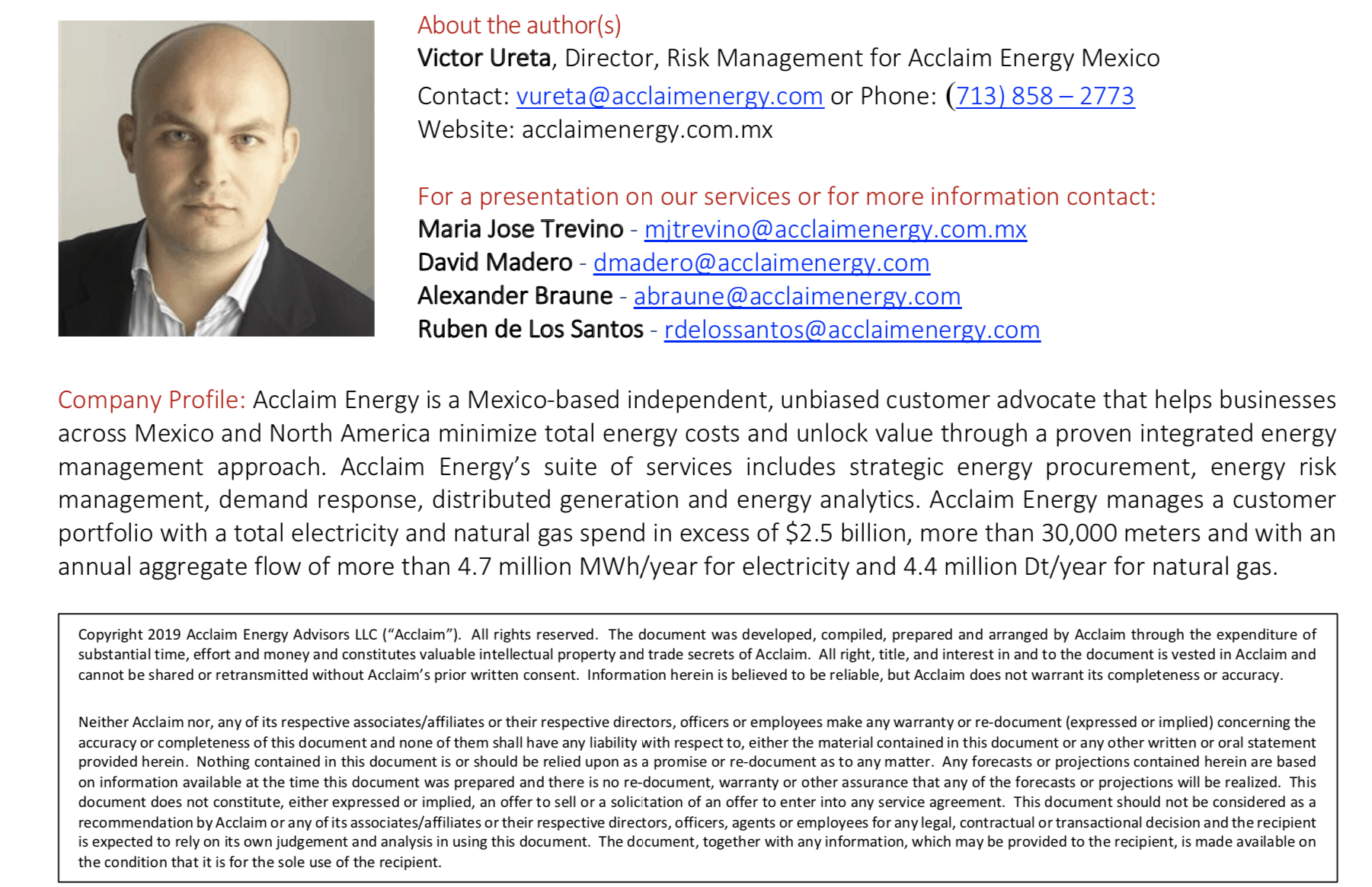Mexico Energy Contracts – The impact of new commercial practices and what it means for businesses.

It seems that a new trend is emerging in Mexico’s electricity market, but is it good for business? This new trend orbits around the idea that suppliers and generators have started “discovering the value of consumers ”, and have begun embracing new business practices, just like Telmex did when deregulation occurred in the telecommunications industry years ago.
For those suppliers and generators who adjust to meet the electricity supply demands and requirements of the business community in Mexico, should expect to benefit from a greater market share and profitability, considering that open markets breed competition and companies who are customer centric tend to be more successful.
Some industry experts believe that change is on the way, as suppliers and generators adjust to the increasing bargaining power businesses have when negotiating an electricity supply agreement. This perception is based on two key factors:
– Suppliers and generators are being forced to find a home for their generation because of the cancellation of the power auctions, and
– Businesses in Mexico are becoming more sophisticated and have a better understanding of the market dynamics and risks therein.
Both factors support this perception, especially since as generators are becoming more receptive to bearing a greater share of the risks, e.g. the congestion risk associated with supply contracts.
While the pendulum is and should swing to more favorable terms for businesses, for some suppliers and generators, it is business as usual as they use the following three factors to protect their position to limit consumers bargaining power:
1. The number of buyers relative to suppliers: This does not apply within energy markets where the pool of suppliers and generators is still relatively small compared to other markets. The reduced number of suppliers and generators in Mexico reduces consumer bargaining power. This limits the ability of businesses to obtain products and services related to their energy supply which increases the dependence on a handful of suppliers and generators.
2. Switching costs: The costs of switching suppliers is measured in the time and effort required by businesses to get a good understanding of the commercial terms, the risks thereof and ability to negotiate supply contracts. It is unfortunate, that some suppliers and generators are not fully transparent in their offers and thus supply contracts remain one-sided in certain areas. This unnecessarily lengthens the time to finalize transactions, which means it takes longer for customers to enjoy lower electricity prices.
3. Backward integration: Backward integration is defined as the buyer’s ability to integrate or merge suppliers. The greater the buyer’s ability for backward integration, the greater its bargaining power. Unfortunately, a business customer’s ability to implement any kind of backward integration is extremely limited in todays’ energy market in Mexico.
As shown above, businesses seem to have a limited capacity to exhort any kind of leverage on suppliers and generators with regards to their energy contracts. However, Acclaim sees the glass half full as a result of how other deregulated markets have been evolving over time, and how certain suppliers and generators have started implementing aggressive commercial strategies to differentiate themselves and capture new revenue opportunities.
These new commercial strategies highlight that suppliers and generators are willing to sacrifice some amount of margin, in exchange for a greater market share to compete against big players. These new commercial strategies are positive and are leading to:
– Greater levels of transparency, so businesses will understand the risks associated in energy transactions; for example, reduction in the fine print and elimination of hidden costs/risk being passed through
– Wider range of products to better fit businesses’ risk profiles; for example, selling energy blocks that closely follow the consumption profile of a business
– Improved contract terms and conditions
These customer centric practices have reduced a business’s dependence on two or three qualified suppliers and generators, thus facilitating the negotiation of new supply agreements, reducing costs and shortening the time required to switch suppliers, all positive signs for market participants!
This new era of customer friendliness in Mexico’s energy market is encouraging and reinforces the predominant role that consumers are gradually enjoying within the market. It is also worth noting that more suppliers and generators are eager to receive feedback from businesses to ensure that they keep abreast of what is taking place in the market, so they can update and adapt their offerings to meet emerging competition. As a leading advisor in this area, Acclaim has started to see some winners and losers amongst suppliers and generators, especially those that have been slow to react and adapt to the new competitive environment.
In closing, it is imperative that the electricity market continues to embrace increased transparency and businesses friendliness, as business customers have become more sophisticated in what they want and what they expect from generators and suppliers. As strong advocates for customer rights, we encourage suppliers and generators to seize this time and opportunity in the market to embrace these common practices in order to differentiate themselves and their brands in the emerging competitive energy marketplace in Mexico.




